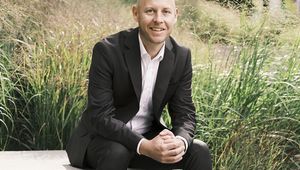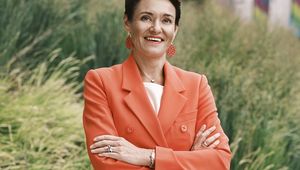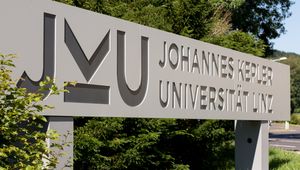Univ. Prof. Dr. Alberta Bonanni is the Vice-Rector for Research and International Affairs. We spoke with the physicist about her responsibilities and plans.

The competition to attract the best scholars and scientists is on - how can the JKU best hold its own in this race? How does the JKU aim to attract the best minds?
Alberta Bonanni: Our four faculties, which also work closely with our schools and across disciplines, are what really sets the JKU apart from other universities. The JKU is young and has evolved at an incredible pace, particularly over the past few years. We are very well connected internationally and, for example, we have joined the "European University Alliance" (EC2U). This gives us a great edge. I also noticed that ten years ago, colleagues in other countries recognized me as Alberta Bonanni from Linz. Today, people know that I work at the JKU; they know JKU on an international level and talk to me about it. There has been a lot of change.
You conduct research with a passion. Do you still have an opportunity to do so despite your responsibilities as a Vice-Rector?
Alberta Bonanni: Oh yes, I wouldn't give my research up! I also stipulated that I could only serve as Vice-Rector providing I could continue being actively involved in research. Although I have to delegate a bit more, I touch base with my institute every day.
As a scholar and Vice-Rector, you are familiar with both sides of academia. Throughout Austria, junior scientists repeatedly criticize chain contracts and career opportunities. What do you think about this?
Alberta Bonanni: While on the one hand it is a problem, on the other, it is a very complex issue. Regrettably, individual universities will not have the authority to resolve this issue. Chain contracts are under intense discussions, and we have been working closely with the University Conference (uniko) on this issue. We have also been trying to come up with our own ideas to potentially improve the situation, also with regard to individual universities. In order to find a solution, however, we have to change basic parameters, and uniko intends to work towards this.
Women tend to be more affected by the uncertainty and at the same time, there is an effort to recruit more women to conduct research and fill professorship positions. Where do you stand in this regard?
Alberta Bonanni: I personally feel it is very important to get girls interested in science. For me, however, the campaign to support "women in research" seems to fall a bit short of the mark. We have to think further, more inclusively. We need to not only involve more women in the scientific community, but also disabled individuals. The JKU has always been in the forefront in this respect and together with the Institute for Integrated Studies, for example, we are planning a state-of-the-art lab designed for those who have disabilities.
Naturally, we have many projects and initiatives designed to, for example, get girls and young women interested in science and research, particularly STEM subjects. However, there needs to be a paradigm shift in schools and within families as by the time women get to the university level, it's already too late.
In spite of all challenges, is becoming a researcher worth it? Would you recommend it to your children?
Alberta Bonanni: Definitely! If they are interested, by all means. When young people choose a career without really following their heart, I feel sorry for them. Doing something you don’t enjoy or are not passionate about can only result in being very unhappy. If you are interested in research, go for it. If your heart is in it, it will work out!
In other words, we still have a lot of work ahead of us. At the end of your term of office, what would the JKU have to become for you to say: Yes, it was all worth it!
Alberta Bonanni: I would like for universities to return to their roots - to the Universitas; a place where it is possible to experience the freedom of ideas and share ideas without preconceived notions and without pressure. This kind of freedom in research and education should be tangible and I would like to contribute to this.
Regardless of whether it's a favorite spot or an insider's culinary tip - what stands out at the JKU for you?
Alberta Bonanni: To be honest, I have two favorite spots at the JKU, my institute and my VR office in the Schloss. From my Schloss office, I can see the park and the trees; and from my institute, I can see people enjoying themselves and children playing. I enjoy both very much.
 Go to JKU Homepage
Go to JKU Homepage











